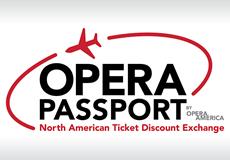Arts Advocacy Update
Shuttered Venue Operators Grant (SVOG) Program Update
OPERA America continues to meet with U.S. Small Business Administration (SBA) leadership to discuss progress with the SVOG program. The SBA released new post-application guidance for grantees on February 23. As of February 10, the SBA has issued decisions on 100% of all initial 17,637 applications ($14.16 billion). The SBA has posted the latest program progress report (as of February 22) and the latest public data on grantees (as of February 23).
The SBA has transitioned to the grant management phase and is sending pending action items to grantees via the SVOG program portal to request a “final” financial budget containing current and forecasted budget items. Please note that grantees will have future opportunities to include additional, allowable expenses in their submittal of expense reports to the federal agency. OPERA America encourages its member grantees to adhere to the deadline for the submittal of their final financial budgets. The SBA released additional video guidance to help grantees prepare their financial budgets and submit their financial budgets.
The SBA will be inviting organizations that did not qualify for a supplemental award based on Q1 or Q2 (2021) earned revenue comparisons to similar quarters in 2019 to apply for supplemental grant award eligibility based on earned revenue declines in Q3 or Q4 of 2021, compared to the same quarters in 2019.
Additionally, the SBA is responding to national organization stakeholder feedback and is adjusting supplemental award eligibility criteria to allow those that experienced their steepest revenue declines later in 2021 to access a supplemental grant award. Current SVOG grantees that did not demonstrate the required 70% or greater earned revenue declines in Q1 or Q2 of 2021 compared to the same quarter in 2019 will be provided an opportunity to seek eligibility for a supplemental grant award if the required earned revenue decline can be demonstrated for Q3 or Q4 of 2021. The approximately 4,000 SVOG grantees that have not yet qualified for a supplemental award will receive an action item within the next two weeks to invite grantees to apply for reconsideration for a supplemental award based on 2021 Q3 or Q4 earned revenue figures.
OPERA America Undertakes Major Advocacy Push — FY2022 Omnibus Appropriations Package
OPERA America is undertaking a major advocacy push until March 11 to pass an FY2022 omnibus appropriations package that provides increased support for the arts and cultural sector. Please use this current OPERA America Action Alert that contains populated messaging for emails that will automatically be sent by the advocacy platform to appropriate congressional members. It only takes a couple of minutes to access and send the action alert. The action alert also contains talking points for phone calls, in-person meetings, and virtual meetings. Further background information is below, and thank you in advance for your advocacy efforts!
Background Information
The U.S. Congress passed another FY2022 temporary funding law — P.L. 117-86 — to fund the federal government at FY2021-enacted funding levels until March 11, 2022. This is the third temporary funding law passed since FY2022 started for the federal government beginning October 1, 2021. Federal arts and cultural-related agencies continue to be historically and drastically underfunded and are not able to provide adequate support to the arts and cultural sector. Congressional negotiations are occurring to pass an FY2022 omnibus appropriations package that funds the federal government at increased funding levels for the remainder of FY2022 (ending September 30, 2022). This may be the last major piece of legislation that the U.S. Congress passes before the November 2022 election.
Please urge your federal elected officials to support and pass an FY2022 omnibus appropriations package that provides $201 million (as passed by the U.S. House) for the National Endowment for the Arts for the remainder of FY2022. There are also other major pieces of legislation (see below) that should be included in a proposed FY2022 omnibus appropriations package.
- Creative Economy Revitalization Act — H.R. 5019/S. 2858
- Establishes a $300 million program to be implemented by the U.S. Department of Labor to award grants to government and nonprofit entities to provide programs that employ individual artists and provide public access to art and arts programming.
- Performing Artist Tax Parity Act of 2021 — H.R. 4750/S. 2872
- Modifies the tax deduction for the expenses of performing artists (including commissions paid to managers or agents) to provide for a phaseout of such deduction for taxpayers whose adjusted gross income exceeds $100,000 ($200,000 for joint return filers). The $100,000 phaseout threshold is adjusted for inflation annually for taxable years beginning after 2021.
- Save Our Stages Extension Act — H.R. 5429/S. 2889
- Extends to March 11, 2023, the time frame during which Shuttered Venue Operators Grant recipients may use grant funds to cover their expenses.
- Employee Retention Tax Credit (ERTC) Reinstatement Act — H.R. 6161/S. 3625
- Reinstates the ERTC retroactively for the fourth quarter of 2021.
- Universal Giving Pandemic Response and Recovery Act — H.R. 1704/S.618
- Reinstates, extends to calendar year 2022, and expands the universal non-itemized deduction for charitable cash contributions to $4,000 for individuals/$8,000 for joint filers.
- Arts Education for All Act — H.R. 5581
- Improves and expands access to various arts education programs and resources for all students.
- Comprehensive Resources for Entrepreneurs in the Arts to Transform the Economy (CREATE) Act of 2022 — H.R. 6381/S. 3521
- Directs various federal agencies to focus and expand federal programs and resources toward the arts and cultural sector, supporting the creative economy and supporting creative workers.
- Promoting Local Arts and Creative Economy Workforce (PLACE) Act — S. 3560
- Establishes an interagency council to encourage the development of the creative economy.
- Adapts state and local workforce plans, Native American Programs, Dislocated Worker Grants, Corrections Education, Small Business Technical Assistance, Career and Technical Education, Work Study, Economic Adjustment, and Veterans affairs programs under Title 38 to include, promote, and strengthen the creative economy workforce.
- Supports job creation through creative-economy wage subsidy and apprenticeship grants.
- Updates the tax code to provide robust deductions for artists’ works and the performing artists tax credit.
- Allows creative economy workers and businesses the same FEMA disaster benefits as those in other sectors.
- Work Opportunities and Resources to Keep Nonprofit Organizations Well (WORK NOW) Act — H.R. 1987/S. 740
- Requires the Department of the Treasury to establish a grant program to provide emergency relief to certain nonprofit organizations, prioritizing organizations that provide services related to the COVID-19 pandemic. Organizations receiving funding must use not less than 60% of these funds to hire former and new employees.
Federal Emergency Management Agency (FEMA) Assistance for Performing Arts Organizations
Just another reminder that the Federal Emergency Management Agency (FEMA), under the U.S. Department of Homeland Security, is offering financial support to qualifying organizations, including performing arts organizations, to support costs associated with the safe opening and operations of facilities amid the COVID-19 pandemic. These resources, outlined in the policy document Coronavirus (COVID-19) Pandemic: Safe Opening and Operation Work Eligible for Public Assistance, are administered by state and regional FEMA offices and are available to entities that meet the general requirements to qualify for FEMA public assistance. This pandemic relief may help support the costs of masks, testing, and other costs incurred through December 31, 2021, for those organizations that own their facilities or are legally responsible for their facilities. OPERA America encourages its members and the overall opera community to direct the owners of their live venues and other facilities to this pandemic relief opportunity.
Background Information
- In 2008, the performing arts community successfully secured FEMA eligibility for “performing arts organizations” under the agency’s definition of a “public nonprofit (PNP),” which has enabled certain nonprofit organizations to receive FEMA support following a natural disaster. The general eligibility requirements for FEMA support also apply to this COVID-19 relief opportunity, and general PNP eligibility is outlined in FEMA’s Fact Sheet and in the Public Assistance Program and Policy Guide Version 3.1.
- FEMA COVID-19 Safe Opening support is administered through state disaster relief offices, so the experience of applicants may vary. Organizations seeking to learn more about eligibility and registering to apply can start by contacting your state’s emergency management agency.
President Biden to Deliver His First State of the Union Address
President Biden is scheduled to deliver his first State of the Union address on March 1 at 9:00 p.m. EST in person before the U.S. Congress. The White House has released a fact sheet concerning his remarks. The president is expected to discuss the administration’s successes, including the passage of the $1.9 trillion American Rescue Plan Act (March 2021) and the Infrastructure Investment and Jobs Act (November 2021). The president will also discuss the current inflation on everyday expenses and the administration’s increased support for small businesses.
The White House has released additional fact sheets concerning several specific issues, including the first 100 days of implementation of the infrastructure package and combatting the national mental health crisis.
The infrastructure law makes investments to improve the nation’s roads, bridges, ports, utilities, and broadband network. The law also establishes a $50 million Nonprofit Energy Efficiency Program for nonprofit organizations to receive grants to improve their facilities, including energy-efficient windows and solar panels. The U.S. Department of Energy will implement the program and will receive $50 million over a five-year period starting in 2022. The Department will provide individual grants capped at $200,000. Specific details, including the application process, have yet to be released; however, the law outlines the following performance-based criteria to be used in grant award determinations: (1) the energy savings achieved; (2) the cost-effectiveness of the use of energy-efficiency materials; (3) an effective plan for evaluation, measurement, and verification of energy savings; and (4) the financial need of the applicant. OPERA America will keep its members and interested stakeholders updated with any new developments.
To combat the national mental health crisis, the Administration will work to expand the supply of mental health providers across the country and improve access to quality mental health services, especially for those residents in rural and frontier areas.
As the administration continues to implement its policy priorities, there will be opportunities for the arts and cultural sector to advocate for the inclusion and implementation of its priorities under the Rebuilding America’s Arts Infrastructure document agreed to by most national arts-related organization stakeholders and supported by OPERA America. OPERA America will keep its members and interested stakeholders updated with advocacy opportunities to lean in with their voices to urge increased support for the arts and cultural sector and its individual creative workers.

Tony Shivers
Tony Shivers is OPERA America’s director of government affairs.



